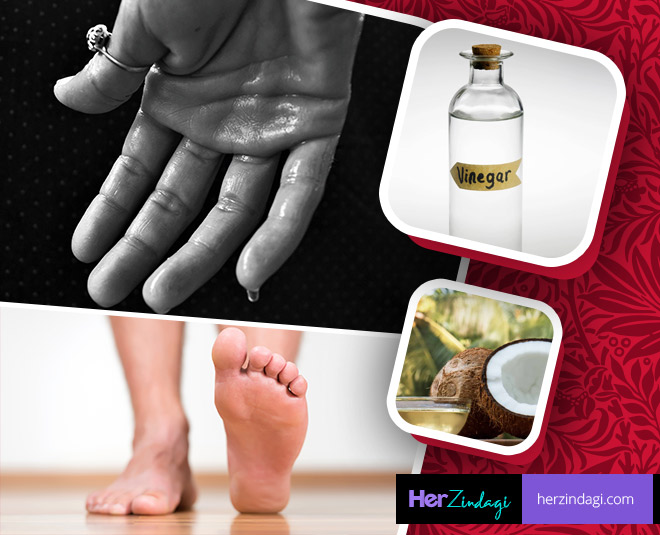Understanding the Origin Causes of Excessive Sweating and Its Influence On Every Day Life
While it is generally understood as a physiological feedback to manage body temperature, the triggers for excessive sweating can vary extensively among individuals, incorporating not just physical factors however additionally psychological and psychological components. By delving right into the root triggers of hyperhidrosis and exploring its multifaceted effects, a deeper understanding of this prevalent issue can be gotten, losing light on the intricacies that individuals grappling with excessive sweating browse on a daily basis.
Physiology of Sweat Glands
The regulation of sweat manufacturing, a crucial physical procedure, is mainly controlled by the activity of gland distributed throughout the body. Sweat glands are classified right into 2 main types: eccrine and apocrine glands. Eccrine glands are the most countless and are discovered in mostly all areas of the body. They play an important function in thermoregulation by secreting a watery fluid onto the skin's surface area, which vaporizes and helps cool down the body down. In contrast, apocrine glands are focused in locations abundant in hair follicles, such as the underarms and groin, and their secretions are thicker and milklike in appearance.
When the body temperature level rises, either as a result of physical task, high temperature levels, or emotional anxiety, the nerve system activates the sweat glands to generate sweat. This sweat is composed mostly of water and electrolytes like salt and chloride. The process of sweat manufacturing is necessary for preserving the body's inner temperature within a narrow, optimum array, highlighting the important role gland play in human physiology.
Triggers for Excessive Sweating
In comprehending the origin of extreme sweating, it is vital to recognize the triggers that can bring about this physiological action. Too much sweating, likewise referred to as hyperhidrosis, can be motivated by various variables, both ecological and physical. One typical trigger is emotional stress and anxiety or anxiety, which can boost the body's gland to produce even more sweat than is essential for cooling. Physical exertion, high temperatures, and spicy foods are likewise understood to activate extreme sweating in individuals susceptible to this problem. Specific medical problems like hyperthyroidism, menopause, or diabetic issues can contribute to extreme sweating as well.
Furthermore, medications such as some antidepressants, opioids, and particular supplements can likewise serve as triggers for hyperhidrosis. Comprehending these triggers is vital in managing extreme sweating effectively - Sweaty hands treatment. By identifying and addressing the specific triggers that motivate extreme sweating in an individual, medical care suppliers can establish tailored therapy strategies to relieve this problem and enhance the person's lifestyle
Medical Issue Associated
Associated with excessive sweating are numerous medical conditions that can intensify this physiological feedback. One common condition is hyperhidrosis, a disorder defined by unusually raised sweating that goes beyond the body's thermoregulatory requirements. This can materialize in focal areas like the hands, soles, underarms, or face, impacting a person's lifestyle due to social embarrassment and discomfort.
In addition, endocrine problems such as hyperthyroidism, diabetes mellitus, and top article menopausal hot flashes can likewise lead to excessive sweating. Hyperthyroidism triggers an overflow of thyroid hormonal agents, speeding up metabolic process and triggering sweating.
Moreover, infections like hiv, endocarditis, and consumption have been linked with evening sweats, an usual signs and symptom recognized to disrupt rest and affect general health. These clinical problems highlight the diverse variety of underlying aspects that can add to too much sweating, necessitating detailed assessment and monitoring by medical care professionals.
Mental and psychological Elements

Influence On Social Communications
Excessive sweating can have profound effects on an individual's ability to engage conveniently in social interactions. The visible signs of sweat discolorations or wet spots on garments can cause embarrassment and self-consciousness, triggering people to take out from social circumstances. This withdrawal can influence connections, limitation social activities, and hinder expert and individual development.

Furthermore, the anxiousness and self-confidence issues originating from extreme sweating can influence communication and interpersonal skills. People might have a hard time to concentrate on conversations, join group activities, or express review themselves with confidence. This can result in feelings of isolation and isolation, as social links end up being testing to maintain.
Verdict

While it is typically comprehended as a physiological response to manage body temperature, the triggers for too much sweating can differ widely amongst individuals, including not only physical elements however also psychological and mental elements. By diving right into the origin creates of hyperhidrosis and exploring its diverse impacts, a deeper understanding of this pervasive issue can be gotten, shedding light on the complexities that people grappling with extreme sweating browse on a day-to-day basis.
Physical exertion, high temperatures, and spicy foods are likewise understood to cause extreme sweating in people vulnerable to this problem. By recognizing and attending to the details triggers that prompt extreme sweating in an individual, health care carriers can create tailored treatment plans to relieve this condition and boost the person's high quality of life.
Extreme sweating can have profound impacts on a person's ability to involve pleasantly in social interactions.